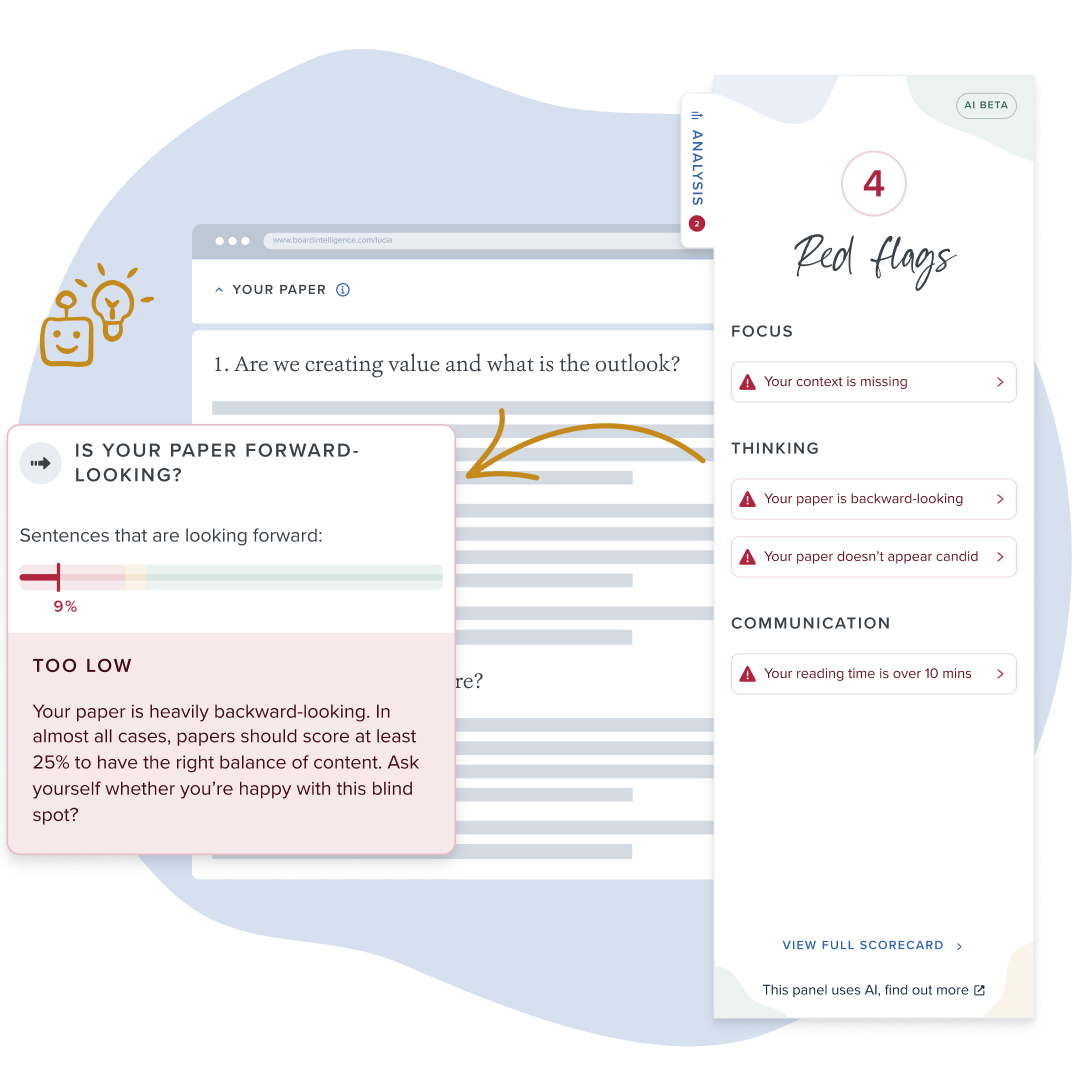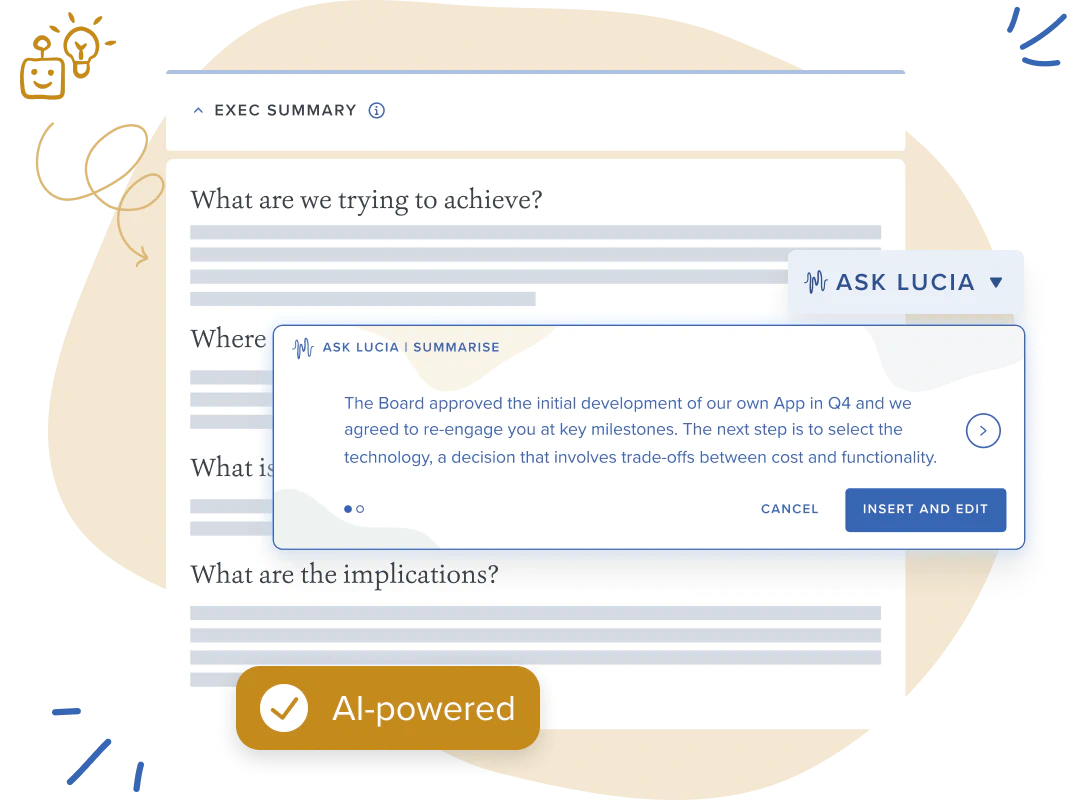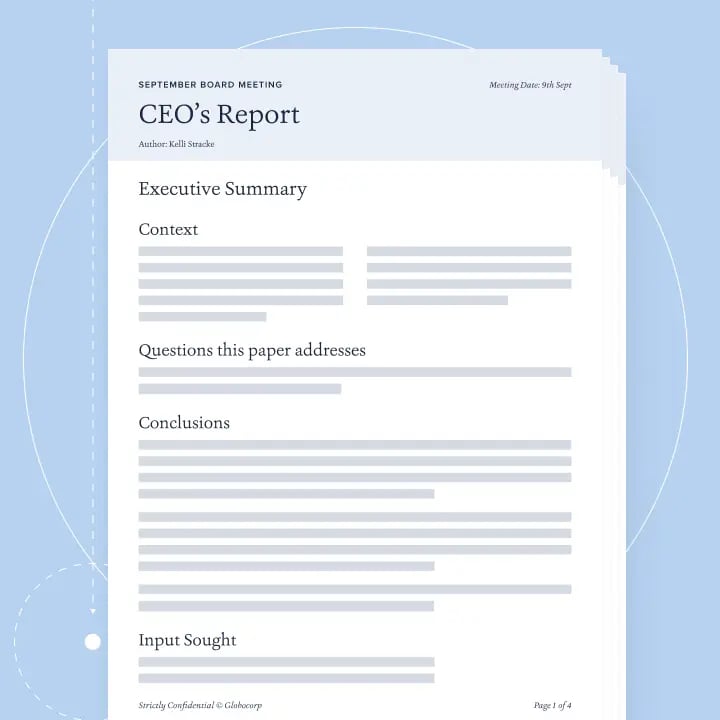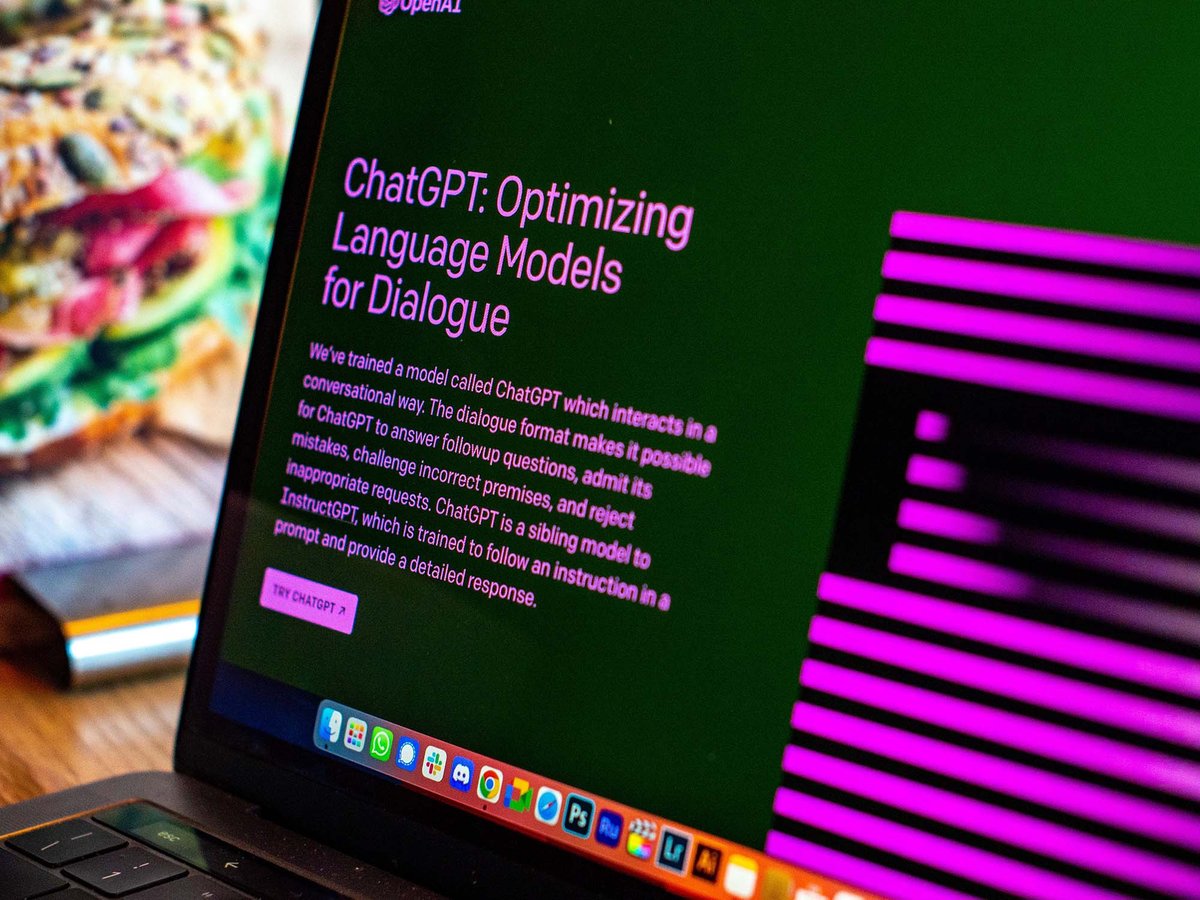Sam Altman, a co-founder of OpenAI, described ChatGPT as being “incredibly limited, but good enough… to create a misleading impression of greatness. It’s a mistake to be relying on it for anything important.”
ChatGPT is incredibly limited, but good enough at some things to create a misleading impression of greatness.
— Sam Altman (@sama) December 11, 2022
it's a mistake to be relying on it for anything important right now. it’s a preview of progress; we have lots of work to do on robustness and truthfulness.
Why would a co-founder of this massively successful AI tool place such a caveat around his work? What does this tell us about using AI to create a board pack—possibly the most important document in an organization, requiring thoughtful input from its writers?
Does AI have a role in board pack creation?
Today's AI tools are certainly proving themselves useful: over 100 million people worldwide have now used ChatGPT, and the emergence of many new AI assistants shows the technology’s potential to infiltrate nearly every area of working life.
However, to quote Bill Gates on the matter of AI, “businesses will distinguish themselves by how well they use it.” Those who come out on top will be those who use these new capabilities wisely. This starts with recognizing that “large language models”-powered tools like ChatGPT only give the illusion of intelligence, and are in fact not as smart as most people think. They may be good at putting words together, but they have no conscious reasoning, moral compass, or even a way to distinguish between truths and lies. They simply aggregate words in a way that’s statistically likely to be correct.
Therefore, it would be misguided to rely on AI to automate and author your board pack. Firstly, asking ChatGPT to write your papers would breach most organizations’ information security policy, and additionally, the AI wouldn’t know the context, understand the issues at stake, or be able to verify the accuracy of the content it produces. And this isn’t a “what if” scenario. Two New York lawyers have recently been fined for relying on fake case citations made up by ChatGPT in a personal injury case. When AI gets things wrong, it has serious real-world consequences.
How can you use AI for board reporting in a safe, smart way?
So, if you can’t trust AI to create a paper from scratch, rather use it to enhance and improve what’s already there. While it can’t be an author, it can play the role of a critical supporter and editor.
Use AI as your board report’s editor, not its author
You can’t just paste sensitive company information into public tools like ChatGPT (which usually have 30-day data retention policies and can share your data with other users) and ask for advice. But Lucia, our board and management reporting platform, never shares or reuses your data. In fact, it’s the only AI-powered tool purpose-built for board and management reporting that doesn’t do so. Lucia uses AI to help report writers consistently create impactful, intelligent, and strategic reports. It’s based on the Question Driven Insight (QDI) Principle, a methodology that builds three essential qualities into your papers:
- Focus on what matters: Ask and answer the most important questions.
- Be rooted in critical thinking: Assure the reader that intelligent analysis has been carried out.
- Communicate clearly and concisely: Share the key points in a way that’s easy for the reader to digest.
Get real-time feedback from AI reporting tools as you write
Lucia helps report writers embed the QDI Principle into their board and management reports at scale, systemizing the approach and quality of papers organization-wide. The live analysis panel reviews your copy as you type, giving you a real-time update on how the report stacks up and how it could be improved.
For example, it can be difficult to ensure that you’re sharing enough information but not overwhelming the board with details. To solve this, Lucia’s AI tools can flag potential issues such as:
- Is a paragraph heavy on information but light on insight?
- Is it too backward-looking or overly focused on the good news?
- Is the paper too long and verbose?
Lucia can identify a paper's strengths and weaknesses, helping you craft a better and more intelligible board or management report.

Get live feedback and real-time prompts.
Automatically summarize your board reports
Effective papers begin with a strong executive summary, answering the key questions upfront. Lucia can help you in this area, too. It allows writers to auto-create an executive summary, which they can then edit to ensure that it accurately reflects the paper and all its complexities.

Build your executive summary with just a few clicks.
Lucia and its AI tools can’t draft the perfect board paper from scratch, but it can critique and guide writers in preparing high-quality reports. It brings a systemized, organization-wide approach to the board reporting process that’s not easy to achieve with training and templates alone. This, in turn, sets the board up to succeed, enabling directors to identify what matters faster, add more value, and discharge their duties to the best of their abilities.
Want to find out how Lucia’s AI tools can support you in delivering better board or management papers? Learn more here.




